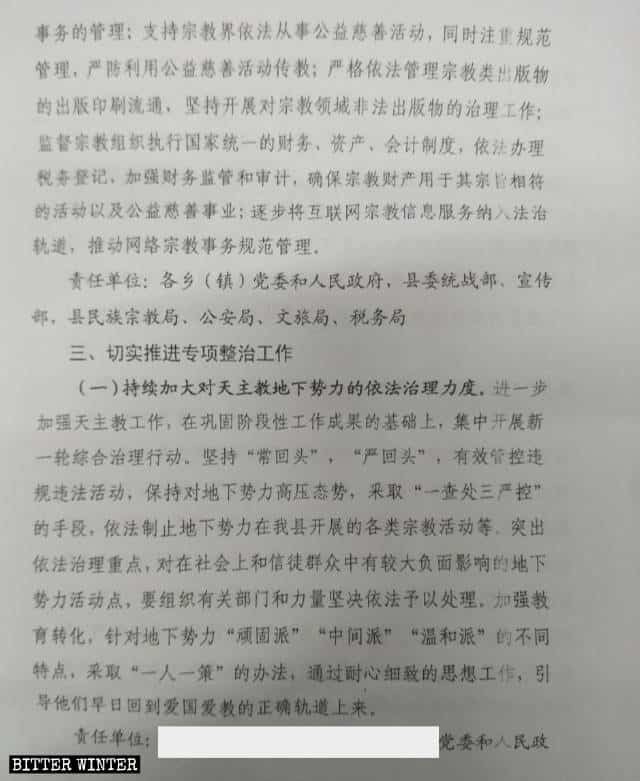New suppression measures include the ban on pilgrimages and customized “political conversion” of those refusing to join the Patriotic Catholic Association.
An Xin
The National Shrine and Minor Basilica of Our Lady of Sheshan is a prominent Roman Catholic church and a renowned pilgrimage site, located on the peak of Sheshan Hill in Shanghai’s Songjiang district. After the clampdown on other pilgrimage sites, Sheshan is the only remaining functioning national destination for China’s underground Catholic pilgrims; tens of thousands go there each May – the month for devotions to the Blessed Virgin Mary – despite government’s restrictions and continuous suppressions.
More than 800 kilometers away from Sheshan, a local government in Fujian Province launched an operation to prevent pilgrimages to the Basilica in 2019. According to a document obtained by Bitter Winter, in connection to the 70th anniversary of the People’s Republic of China this year, authorities are “enhancing political sensitivity and the foresight of work,” to safeguard the social and political security and stability, and eliminate all “unstable” elements; the Underground Catholic Church considered one of them.
The document lists specific preventive measures:
- demand the National Security Brigade, Network Security Brigade, and grassroots-level police stations to strengthen the collection of leads about the movements of underground Catholics organizing groups under various names to go on pilgrimages to Sheshan Hill;
- ascertain information about foreign “anti-CCP” groups and religious organizations participating in Sheshan Hill pilgrimage activities;
- strictly control clergy and core believers within the jurisdiction, and resolutely prevent underground churches from organizing group pilgrimages to Sheshan Hill;
- intensify Internet and mobile phone surveillance, and promptly delete or block “harmful” information (i.e., unfavorable to the CCP’s ability to maintain its political stability) to eliminate “unstable elements,” and punish, in accordance with the law, individuals who spread “harmful” information.
Bitter Winter has also obtained a document, issued in April by another locality in Fujian, about the need to continue strengthening the crackdown on and control over the Underground Catholic Church and launch of a new round of comprehensive actions to “resolving the issue of illegal religious activities.”
The document enumerates measures of suppression against the underground Catholics, such as so-called “return visits” to the closed down religious venues to ensure that they do not reopen; the elimination of underground churches that have significant influence; and the implementation of individual, customized “ideological conversion” policy of the “stubborn faction” (those who refuse to join the Chinese Patriotic Catholic Association (CPCA)), “undecided,” and “moderate faction” (those inclined to join the CPCA).

Ever since the signing of the Vatican-China Deal of 2018, the CCP’s crackdown against underground Catholic churches has become increasingly brazen. The agreement seems to have become a “legitimate” excuse for the CCP to shut down underground churches, putting them in danger of being completely eliminated.
In mid-March, two underground meeting venues – Shijijiayuan and Tianjiaoyuan – in Fuzhou, Fujian’s capital, were shut down on the grounds that they were “holding illegal gatherings.”

The Shijijiayuan meeting venue was closed down for the third time. To uphold their faith, believers had no choice but to hold their gatherings in secret, going around from place to place.

On May 14, the Vatican Secretary of State Cardinal Pietro Parolin stated that in China there is now only one Catholic Church, loyal both to the Pope and to the government. From the words of the Cardinal, it appears that this “unified” Chinese Catholic Church is something different from the old Patriotic Church. However, the CCP continues to interpret the Vatican-China deal to the effect that all Catholics should simply join the Patriotic Church.
Go to Source
Author: An Xin




